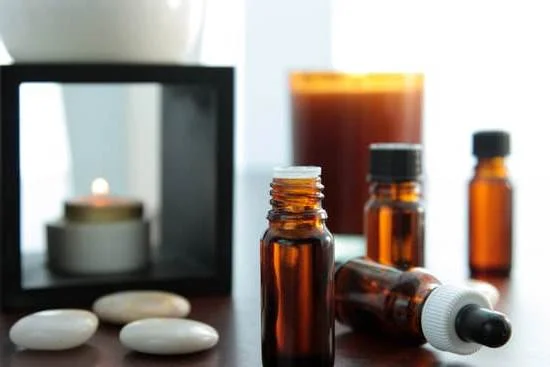Aromatherapy has long been used as a natural remedy for various ailments, and its potential to treat the nervous system has garnered increasing attention. In this article, we will delve into the fascinating world of aromatherapy and how it can effectively support the nervous system. Understanding the Impact of Aromatherapy on the Nervous System.
Aromatherapy involves using essential oils derived from plants to promote physical and psychological well-being. When it comes to treating the nervous system, essential oils have shown promising results in alleviating symptoms of stress, anxiety, and other related conditions. This article aims to provide a comprehensive understanding of how aromatherapy interacts with the nervous system and its potential benefits.
The nervous system is a complex network that plays a crucial role in transmitting signals between the brain and the rest of the body. By exploring the science behind aromatherapy and its effects on mood, stress, and anxiety, we can gain insight into how specific essential oils can positively impact our nervous system function. Additionally, we will discuss case studies and research findings that highlight the efficacy of aromatherapy for managing various nervous system disorders.
Understanding the Impact of Aromatherapy on the Nervous System
Aromatherapy is a holistic healing treatment that uses natural plant extracts, known as essential oils, to promote health and well-being. When inhaled or applied to the skin, these essential oils can interact with the nervous system, exerting a powerful influence on both physiological and psychological aspects of human health.
The olfactory system plays a key role in how aromatherapy affects the nervous system. When essential oil molecules are inhaled, they travel through the nose and interact with olfactory receptors, sending signals to the brain’s limbic system – the area responsible for emotions and memories.
This can lead to various effects on mood, stress levels, and overall emotional well-being. Additionally, when essential oils are absorbed through the skin during massage or other topical applications, they can have a direct impact on nerve receptors in the skin and underlying tissues.
Research has shown that certain essential oils have calming and relaxing properties that can help reduce feelings of stress and anxiety. For example, lavender oil has been found to decrease cortisol levels (the stress hormone) in the body when inhaled or applied topically.
Similarly, citrus essential oils like bergamot and sweet orange have been linked to improved mood and reduced anxiety due to their uplifting scents. This highlights how aromatherapy can directly influence neurotransmitters such as serotonin and dopamine, which play a crucial role in regulating mood and emotions.
| Essential Oil | Nervous System Benefit |
|---|---|
| Lavender | Reduces stress and anxiety |
| Bergamot | Improves mood and reduces anxiety |
| Sweet Orange | Uplifting scent for improved mood |
Essential Oils for Nervous System Support
Aromatherapy has long been used as a natural remedy for various health issues, including those related to the nervous system. Essential oils, the core components of aromatherapy, are known for their ability to interact with the body in numerous ways, including providing support for the nervous system. But how can aromatherapy treat the nervous system and what essential oils are best suited for this purpose?
When it comes to treating the nervous system, essential oils such as lavender, chamomile, and frankincense are particularly beneficial. Lavender oil is well-known for its calming properties and its ability to reduce feelings of anxiety and stress. Chamomile oil also has a calming effect and can help promote relaxation and improve sleep quality. Frankincense oil is recognized for its ability to ease feelings of tension and support overall mental well-being.
These essential oils can be used in various ways to effectively support the nervous system. Inhalation through methods such as diffusers or direct inhalation from the bottle can provide quick relief from symptoms of stress and anxiety.
Additionally, incorporating these essential oils into massage oils or bath soaks allows them to be absorbed by the body while providing a soothing sensory experience. When used consistently and properly, essential oils can play a significant role in promoting optimal nervous system health and function.
Aromatherapy Techniques for Nervous System Treatment
Inhalation
One of the most popular and effective methods of utilizing aromatherapy for nervous system treatment is through inhalation. When essential oils are inhaled, the molecules travel through the olfactory system and directly impact the limbic system of the brain, which is responsible for emotions, memories, and behavior.
This can result in a calming effect on the nervous system, reducing stress and anxiety. Methods of inhalation include using a diffuser, adding a few drops of essential oil to a bowl of hot water, or inhaling directly from the bottle.
Massage
Another way to incorporate aromatherapy into nervous system treatment is through massage. By diluting essential oils with a carrier oil such as almond or coconut oil, they can be applied topically to the skin during a massage. The combination of touch and scent can have a powerful impact on the nervous system, relieving tension and promoting relaxation. Specific massage techniques targeted at pressure points related to nervous system regulation can maximize the benefits of aromatherapy for this purpose.
Baths
Taking a warm bath infused with essential oils is an indulgent yet effective way to support the nervous system through aromatherapy. The warm water helps to relax muscles and loosen tension while allowing the essential oils to be absorbed into the skin. The steam from the bath also aids in inhalation, providing a dual benefit for calming the nervous system. Aromatherapy baths can be particularly beneficial before bed as part of a nighttime routine to promote deep sleep and relaxation.
These various techniques showcase how aromatherapy can treat the nervous system through different methods of application and provide individuals with multiple options for incorporating it into their self-care routines. Understanding these techniques offers opportunities for individuals seeking non-pharmacological ways to support their nervous systems.
Case Studies and Research on Aromatherapy and the Nervous System
Aromatherapy has been the subject of numerous studies and research that seek to understand how essential oils can impact the nervous system. One of the primary ways in which aromatherapy treats the nervous system is through its ability to trigger the limbic system, the part of the brain that plays a role in emotions, behaviors, sense of smell, and long-term memory.
This interaction can lead to various psychological and physiological effects, contributing to improved mental health. Research has shown that certain essential oils have the potential to reduce stress, anxiety, and promote relaxation, making them valuable tools for supporting the nervous system.
For example, a study published in Complementary Therapies in Clinical Practice found that inhaling lavender essential oil significantly reduced anxiety levels in patients awaiting dental treatment compared to those who did not use it. Another study in Evidence-Based Complementary and Alternative Medicine demonstrated that inhaling bergamot essential oil led to significant reductions in saliva cortisol levels and blood pressure, indicating its stress-reducing effects.
In addition to these scientific studies, there are also numerous case reports documenting the positive impact of aromatherapy on individuals with nervous system disorders. These real-life examples provide compelling evidence of how aromatherapy can be an effective complementary therapy for conditions such as anxiety disorders, depression, and even neurological conditions like Parkinson’s disease and Alzheimer’s disease.
Testimonials from individuals who have incorporated aromatherapy into their daily routines also highlight the practical benefits of using essential oils for nervous system support.
| Study Title | Findings |
|---|---|
| Effect of Lavender Essential Oil on Dental Anxiety | Inhalation of lavender oil reduced anxiety levels in patients awaiting dental treatment |
| Bergamot Essential Oil Inhalation Effects on Stress Indicators | Inhaling bergamot oil resulted in decreased saliva cortisol levels and blood pressure, indicating stress-reducing effects |
Precautions and Risks of Using Aromatherapy for Nervous System Conditions
Aromatherapy is a popular and effective natural treatment for various health conditions, including the nervous system. However, it is important to understand that while aromatherapy can be beneficial, there are also potential risks and precautions to consider when using essential oils for nervous system support.
When exploring how aromatherapy can treat the nervous system, it is crucial to be aware of the potential side effects and contraindications of using essential oils. Some essential oils may cause skin irritation or allergic reactions in some individuals. It is important to perform a patch test before using any new essential oil, especially if you have sensitive skin or known allergies.
In addition to skin reactions, certain essential oils may have adverse effects on individuals with pre-existing medical conditions or those who are taking specific medications. For example, some essential oils can interact with blood thinners or medications for high blood pressure. It is important to consult with a healthcare professional before incorporating aromatherapy into your routine if you have any underlying health concerns or are currently on medication.
Safety guidelines should always be followed when using aromatherapy for nervous system conditions. Essential oils should be diluted properly and used in moderation to avoid potential complications. Pregnant women, infants, and pets may also be more sensitive to certain essential oils, so special precautions should be taken when using aromatherapy around these individuals.
It is important to educate yourself about the proper usage and potential risks of using aromatherapy for nervous system conditions. By understanding and following safety precautions, you can enjoy the benefits of aromatherapy while minimizing any potential adverse effects.
Incorporating Aromatherapy Into Daily Self-Care Routines
Aromatherapy has been used for centuries as a natural way to promote relaxation, reduce stress, and support overall well-being. With its ability to impact the nervous system, it is an effective tool for daily self-care routines. By incorporating aromatherapy into your daily life, you can experience the benefits of improved mood, reduced anxiety, and better mental clarity.
Creating a Relaxing Environment
One of the simplest ways to incorporate aromatherapy into your daily routine is by creating a relaxing environment in your home or workspace. This can be achieved by using essential oil diffusers to fill the air with soothing scents such as lavender, chamomile, or bergamot. The gentle aroma of these essential oils can help calm the mind and promote a sense of peace and tranquility throughout the day.
Custom Aromatherapy Blends
Another way to incorporate aromatherapy into your daily self-care routine is by creating custom aromatherapy blends tailored to your individual needs. By combining different essential oils known for their benefits to the nervous system, such as frankincense for grounding and cedarwood for calming effects, you can create personalized blends that cater to specific concerns or goals. These custom blends can be used in diffusers, massage oils, or baths for maximum effectiveness.
Aromatherapy on-the-Go
Incorporating aromatherapy into daily self-care doesn’t have to be limited to your home environment. You can also carry portable aromatherapy solutions with you wherever you go. Whether it’s applying a drop of lavender essential oil on your wrist during a stressful workday or keeping an inhaler infused with calming essential oils in your bag for moments of anxiety, incorporating aromatherapy on-the-go can provide instant relief when needed most.
Incorporating aromatherapy into daily self-care routines allows individuals to take advantage of the natural benefits essential oils offer when it comes to supporting the nervous system. By creating a relaxing environment, customizing blends tailored to individual needs, and utilizing aromatherapy on-the-go, one can effectively integrate this holistic practice into their everyday life for improved well-being and nervous system support.
Conclusion
Aromatherapy offers a natural and holistic approach to treating the nervous system and promoting overall wellness. By using essential oils derived from plants, aromatherapy can have a powerful impact on the nervous system, helping to alleviate stress, anxiety, and mood disorders. The olfactory system, which is closely linked to the nervous system, plays a key role in how essential oils affect our bodies and emotions.
Here are some ways in which aromatherapy can treat the nervous system:
- Inhalation: Inhaling essential oils through diffusers or inhalers allows their molecules to enter the body and interact with the brain’s limbic system, which regulates emotions, behavior, and long-term memory. This method of application is particularly effective for calming the nervous system and promoting relaxation.
- Massage: Aromatherapy massage involves diluting essential oils in carrier oils and applying them to the skin through massage techniques. This not only has physical benefits but also helps with mental relaxation by stimulating nerve endings in the skin and sending signals to the brain.
- Bathing: Adding a few drops of essential oil to a warm bath can create a soothing experience for both the mind and body. The combination of steam and aroma provides an excellent way to relieve stress while benefiting from the effects of aromatherapy on the nervous system.
By incorporating these methods into daily self-care routines, individuals can experience improved mental well-being and support for their nervous systems.
Bonus Section
In conclusion, the use of aromatherapy for treating the nervous system has been shown to be highly effective in promoting overall wellness. The impact of essential oils on the nervous system is remarkable, as they have the ability to reduce stress, anxiety, and improve mood. Through various methods of application such as inhalation, massage, and baths, individuals can experience the benefits of aromatherapy on a daily basis.
The essential oils discussed in this article have been proven to support the nervous system and promote relaxation. By incorporating aromatherapy into daily self-care routines, individuals can create a calming environment that fosters mental and emotional well-being. Additionally, the relationship between aromatherapy and mental health should not be overlooked, as it has the potential to be a complementary therapy for conditions such as depression, PTSD, and ADHD.
Overall, the power of aromatherapy for nervous system wellness cannot be understated. It offers a natural and holistic approach to supporting the body’s physiological and psychological functions. As with any therapeutic practice, it is important to use caution and consult with a healthcare professional before starting an aromatherapy regimen. With proper guidance, individuals can harness the benefits of essential oils for nervous system support and mental health improvement.
Frequently Asked Questions
How Do Essential Oils Help the Nervous System?
Essential oils can help the nervous system by promoting relaxation, reducing stress and anxiety, and improving sleep quality. When inhaled, certain essential oils can directly impact the brain’s limbic system, which is responsible for emotions and memories.
How Does Aromatherapy Affect the Body Systems?
Aromatherapy affects the body systems by interacting with the olfactory nerves when inhaling essential oils. This can stimulate changes in the body, such as reducing stress, improving circulation, or providing relief from common ailments like headaches or nausea.
What Oil Is Good for the Nervous System?
Lavender oil is often considered good for the nervous system due to its calming and relaxing effects. It has been used to alleviate anxiety, depression, and insomnia. Additionally, oils like chamomile, bergamot, and frankincense are also known for their calming effects on the nervous system.

Are you looking for a natural way to improve your health and wellbeing?
If so, aromatherapy may be the answer for you.





